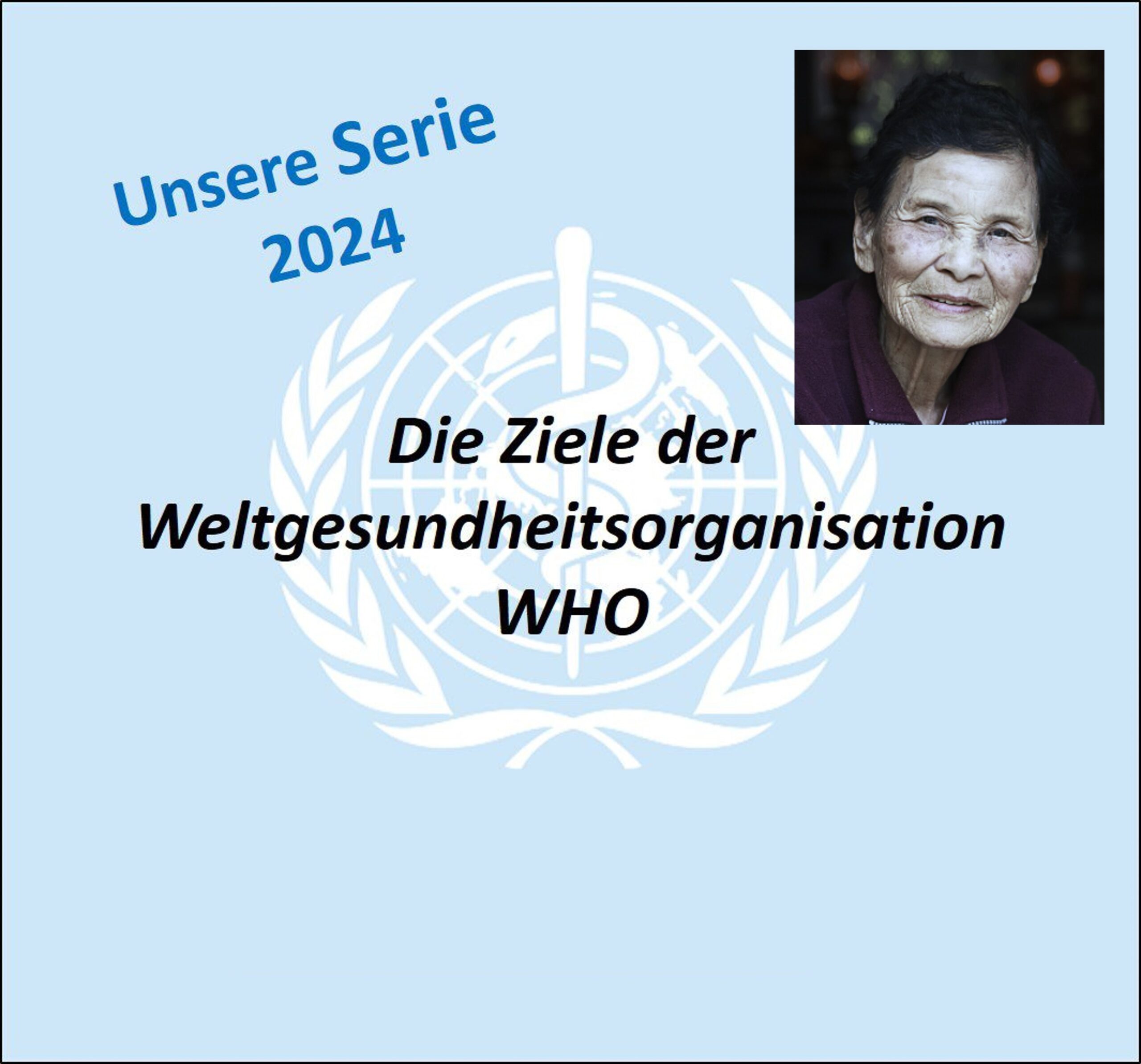Die 67- Jährige Nan Lay Thu steht vor ihrer kleinen Hütte im ländlichen Myanmar und wartet auf ihre zwei Enkelkinder. Auf dem kleinen Herd steht das Abendessen in einem großen Topf, aus dem es lecker dampft. Die zwei werden sicher hungrig aus der Schule kommen. Ihre Tochter ist heute auf dem Feld beim Arbeiten. Das doppelte Einkommen durch Vater und Mutter ist wichtig für die junge Familie – nur so können sie sich die Schule ihrer beiden Kinder leisten. Nan Lay Thu ist sehr glücklich, dass sie hier helfen kann. Vielen Familien in der Nachbarschaft geht es nicht so gut: Zwar leben auch hier traditionsgemäß mehrere Generationen unter einem Dach, jedoch leiden viele der Älteren an altersbedingten Gebrechen und sind auf die Hilfe und Pflege der Jüngeren angewiesen und können selber nur wenig im Alltag unterstützen.
Es gibt immer mehr ältere Menschen auf der Welt, da die Lebenserwartung weltweit laut World Health Organization (WHO; Weltgesundheitsorganisation) rasant ansteigt. In Myanmar zum Beispiel, kann ein 2015 geborenes Kind damit rechnen, 20 Jahre länger zu leben, als noch vor 50 Jahren (Weltbericht über Altern in Gesundheit WHO 2016). Da gleichzeitig die Geburtenrate global sinkt, wird die Bevölkerung immer älter. Das kann für die Gesellschaft ein großes Potential sein, oder aber eine hohe Belastung darstellen, denn ein „alter Mensch“ ist nicht gleich ein „alter Mensch“! Es gibt diejenigen, die auch im höheren Alter noch gesund sind, und wie Nan Lay Thu für die Gesellschaft eine große Hilfe darstellen. Viele jedoch leiden unter Altersbeschwerden. Laut WHO hängt die Wahrscheinlichkeit, dass eine längere Lebenszeit Chancen mit sich bringt, ganz maßgeblich von der Gesundheit ab. Diese wiederum, wird erheblich von der Lebens- und Verhaltensweise der Menschen in Kindheit, Jugend und jungem Erwachsenenalter bestimmt. Dazu zählt neben der Ernährung und der Bildung, auch das Wohnumfeld sowie die Möglichkeit sich regelmäßig untersuchen zu lassen um Krankheiten rechtzeitig zu erkennen.
„Altern in Gesundheit“ ist daher ein weiteres wichtiges Ziel der WHO. Strategien eine ökonomisch wie soziale nachhaltige Gesellschaft aufzubauen sind somit essentiell. In erster Linie sollten diese präventive gesundheitliche Maßnahmen, eine ausgewogene Ernährung und Zugang zu Bildung beinhalten.
Genau an diesen Punkten setzten auch unsere Aktivitäten der Artemed Stiftung an: In den Projekten Bolivien, Myanmar und Tansania versuchen wir, durch geeignete und angepasste Initiativen Vorsorgeuntersuchungen und Check-ups in der Bevölkerung zu verbessern, gesunde Ernährung sicherzustellen und durch Stipendien und Ausbildungsangebote die Bevölkerung nachhaltig zu schulen.
Durch diese Arbeit hoffen wir, dass viele Großeltern und ältere Menschen lange so fit sind wie Nan Lay Thu und somit nicht nur selber glücklicher und zufrieden sind, sondern auch ihren Beitrag zur Gesellschaft leisten können.
Lesen Sie mehr über „Altern in Gesundheit“ in dem Bericht der WHO.



